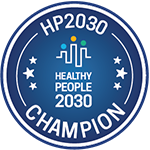One in three American adults is at risk for developing Type 2 Diabetes, which is why Gwinnett, Newton, and Rockdale County Health Departments are partnering with Diabetes “You Can Win” Foundation to participate in American Diabetes Association Alert Day®.
March 12-18, 2017: Flood Safety Preparedness Week
Get prepared during Georgia’s Flood Safety Preparedness Week which runs
March 12th through March 18th
Flooding is a nationwide threat and are among the most frequent and costly natural disasters. Conditions that cause floods include heavy or steady rain for several hours or days that saturate the ground. However, flash floods occur suddenly due to rapidly rising water along a stream or low-lying area. Remember, flooding can occur at any time of the year. Prepare yourself, your family, and your home.
Basic Safety Tips:
• Turn Around, Don’t Drown! ®
• Avoid walking or driving through flood waters.
• Just 6 inches of moving water can knock you down, and 2 feet of water can sweep your vehicle away.
• If there is a chance of flash flooding, move immediately to higher ground. Flash floods are the #1 cause of weather-related deaths in the US.
• If floodwaters rise around your car but the water is not moving, abandon the car and move to higher ground. Do not leave the car and enter moving water.
• Avoid camping or parking along streams, rivers, and creeks during heavy rainfall. These areas can flood quickly and with little warning.
Understand the Difference between a Flood Watch and Floor Warning:
Flood Watch = “Be Aware.” Conditions are right for flooding to occur in your area.
Steps to Take:
• Turn on your TV/radio. You will receive the latest weather updates and emergency instructions.
• Know where to go. You may need to reach higher ground quickly and on foot.
• Build or restock your emergency preparedness kit. Include a flashlight, batteries, cash, and first aid supplies.
• Prepare Your Home
o Bring in outdoor furniture and move important indoor items to the highest possible floor. This will help protect them from flood damage.
o Disconnect electrical appliances and do not touch electrical equipment if you are wet or standing in water. You could be electrocuted.
o If instructed, turn off your gas and electricity at the main switch or valve. This helps prevent fires and explosions.
Flood Warning = “Take Action!” Flooding is either happening or will happen shortly.
Steps to Take:
• Move immediately to higher ground or stay on high ground.
• Evacuate if directed.
• Avoid walking or driving through flood waters.
When it is not flooding: Make a Flood Plan:
• Know your flood risk.
• Make a flood emergency plan.
• Build or restock your emergency preparedness kit, including a flashlight, batteries, cash, and first aid supplies.
• Consider buying flood insurance.
• Familiarize yourself with local emergency plans. Know where to go and how to get there should you need to get to higher ground, the highest level of a building, or to evacuate.
• Stay tuned to your phone alerts, TV, or radio for weather updates, emergency instructions, or evacuation orders.
Information provided by www.ready.gov
March 13-17, 2017 is Preteen Vaccine Awareness Week in Georgia
“Reproduced with permission of Merck Sharp & Dohme Corp, a subsidiary of Merck & Co., Inc., Whitehouse Station, New Jersey, USA. All rights reserved.”
Parents, set a date to vaccinate your preteen
Let’s face it – nobody likes getting shots – but a shot lasts a second; diseases last much longer.
National Women & Girls HIV / AIDS Awareness Day is March 10th
National Women and Girls HIV/AIDS Awareness Day (NWGHAAD) is an annual observance that sheds light on the impact of HIV and AIDS on women and girls. Every year on March 10, and throughout the month of March, national and community organizations come together to show support for women and girls impacted by HIV and AIDS. This year marks the 12th observance of National Women and Girls HIV/AIDS Awareness Day.
February 7th is National Black HIV
February 7th is National Black HIV/AIDS Awareness Day
February 7, 2017
Greater Than AIDS is releasing a powerful new mini-doc series about how one family is facing HIV together. Presented as part of We Are Family, a campaign that highlights the importance of social support for people living with HIV, these three videos are part of a series of profiles of mothers and sons produced with support from the Elton John AIDS Foundation.
You can access these short videos at: https://www.greaterthan.org/we-are-family-deondre-and-kathy/
You can also link to online resources on the latest facts about HIV and tips for supporting loved ones at:
January is Cervical Cancer Awareness Month
January is Cervical Health Awareness Month! The Gwinnett, Newton, and Rockdale County Health Departments encourage every woman to make a New Year’s resolution to talk with their healthcare provider about cervical health! Nearly 12,000 women in the United States are diagnosed with cervical cancer each year, and of those, about one-third will die as a result of the cancer. But the disease is highly preventable and treatable with improved vaccinations and screenings!
The American Sexual Health Association (ASHA) and the National Cervical Cancer Coalition have named January Cervical Health Awareness Month to encourage women in the United States to receive the human papillomavirus (HPV) vaccine if they are eligible and get the appropriate age-based Pap and HPV tests. We offer both the vaccine and the women’s health screenings at all of our clinic locations, just visit www.gnrhealth.com/locations to find the one closest to you!
September is National Preparedness Month
September is National Preparedness Month, a good time to assess how ready we are for emergencies such as natural disasters. Many people ask themselves “Why should I be prepared? Won’t someone come to help me?” Help will come – but depending on the nature of the event, it may take some time.
The value of preparedness is in making sure you and your family members have the things you need when normal services break down. This can happen suddenly and dramatically – with a hurricane, a tornado or an ice storm.
What should you have ready in case of an emergency? You may become bogged down in your planning, but don’t get stuck worrying about getting the “right stuff” into your kit. Here are two things to remember:
- Something is better than nothing
- Knowing what to stock is as simple as thinking about what you would need if you were stranded for three or more days
A good place to start is with these 10 items:
| 1. Water | 6. Flashlight |
| 2. Food | 7. Radio |
| 3. Can Opener | 8. Clothes |
| 4. Medications | 9. Personal Care Items |
| 5. First Aid | 10. Important Documents (including cash) |
Check what our Health Department Emergency Preparedness Team has to say about planning for local emergencies. They also give tips on how to help your family prepare for an emergency and creating a simple emergency kit for your car.
And while you’re thinking about preparing for emergencies – don’t forget the kids. Sesame Workshop, along with its project partners, created Let’s Get Ready! Planning Together for Emergencies. Featuring beloved characters from Sesame Street, this website helps children learn how to be prepared in an emergency situation. Click here for more information.
Additional resources to help prepare for an emergency:
CDC: http://www.bt.cdc.gov/preparedness/
FEMA: http://www.ready.gov
GEMA: http://www.ready.ga.gov/
Red Cross: http://www.redcross.org/prepare
State Health Officials Strengthen Ebola Preparedness Outreach, Urge Enhanced Protection
Ensuring Georgia’s medical providers, hospitals, and the general public are prepared for the possibility of Ebola infection in Georgia, no matter how remote, is a top priority of Gov. Nathan Deal’s administration. While only two individuals in the U.S. have been diagnosed with Ebola, both in Texas, the time for preparation and education in Georgia is now, said Brenda Fitzgerald M.D., commissioner of the Georgia Department of Public Health (DPH).
“We are working to ensure that all of Georgia knows what to look for, what questions to ask, and what to do,” Fitzgerald said.
At the direction of the Governor, DPH and its many public health partners have been strengthening outreach efforts across Georgia. Individualized guidance has been distributed to all of Georgia’s licensed physicians, physician assistants, educators and emergency medical services (EMS) providers. Specific guidance is now being sent to medical centers and clinics in each of Georgia’s colleges and universities.
Key Public Health leaders are meeting with state medical and hospital associations and are providing guidance to hospitals for infectious disease exercises. DPH is currently monitoring for, and coordinating testing for suspected Ebola. Georgia state law permits DPH to isolate or quarantine individuals if necessary. Fitzgerald remains in close communication with experts at the CDC.
Public Health officials recognize Georgia’s preparation efforts must extend well beyond the medical community, major institutions and government. All Georgians should wash their hands thoroughly and often, certainly before touching any part of their face.
“Anyone, anywhere who is assisting someone who has fallen ill and who has traveled to an impacted nation in West Africa within 3 weeks, needs to be rapidly isolated from others,” Fitzgerald said, noting that suspicion of Ebola infection warrants clear action if symptoms and travel history align with the guidance.
Signs of Ebola include fever (greater than 101.5°F or 38.6°C) or other symptoms, such as severe headache, muscle pain, vomiting, diarrhea, abdominal (stomach) pain, or unexplained hemorrhage (bleeding or bruising). Symptoms appear in 2 to 21 days after exposure, but the average is 8 to 10 days. Clinicians, or any other person providing assistance, should ask sick individuals about their travel histories to determine if they have traveled to West Africa within the previous three weeks. Travelers, upon returning to the U.S. from affected regions should monitor their health and body temperature for 21 days.
For more information on Ebola protection and prevention, visit cdc.gov/vhf/ebola or dph.ga.gov/ebola.
Health Department Closed on Columbus Day
All Gwinnett, Newton and Rockdale County Health Department locations will be closed on Monday, October 13 in observance of Columbus Day.
All locations will reopen during normal business hours on Tuesday, October 14.
Click here to find a location near you and the hours of operation.
Red Ribbon Week 2014
This October 23rd – 31st, take a visible stand against drugs by celebrating Red Ribbon Week®, the oldest and largest drug prevention program in the nation. First established by Congress in 1988, the campaign was created to commemorate the life of Drug Enforcement Administration Agent Enrique “Kiki” Camarena who made the ultimate sacrifice in the line of duty.
Today, the Red Ribbon serves as a symbol of intolerance towards the use of drugs and, every year, reaches millions of young people across the United States. This year’s theme is Love Yourself. Be Drug Free®. The Gwinnett, Newton and Rockdale County Health Departments supports the Red Ribbon Campaign® and invites our communities to join our efforts as we educate youth and raise awareness for drug prevention!
For more information on how you or your organization can participate in local Red Ribbon Week Campaign® activities, please contact us!




